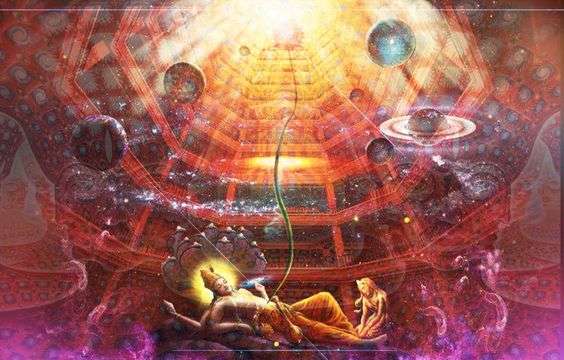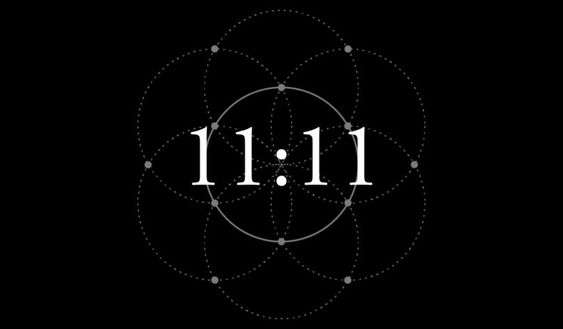Does Belief in God Make You Spiritual?
Table of Contents:
Introduction
Understanding Spirituality
The Role of Belief in God
Beyond Religious Boundaries
The Personal Quest for Meaning
A Shared Human Experience
Conclusion
Introduction
In the intricate tapestry of human existence, questions about the nature of life, purpose, and the universe often lead to introspection and contemplation. A topic that has ignited numerous discussions is the relationship between belief in a higher power, such as God, and the concept of spirituality. In this exploration, we delve into the nuanced interplay between these two aspects and whether belief in God is a prerequisite for embarking on a spiritual journey.
Understanding Spirituality
At the heart of this debate lies a fundamental distinction between religion and spirituality. Religion often entails organized doctrines, rituals, and practices, while spirituality encompasses a broader spectrum of personal experiences and connections with the universe, the self, and a sense of purpose. It is the pursuit of a deeper meaning that transcends the material realm and speaks to the very essence of our being.
The Role of Belief in God
For many individuals, belief in God serves as a cornerstone of their spiritual journey. This belief provides a foundation upon which they construct their understanding of the cosmos and their place within it. The concept of a divine creator offers solace, guidance, and a profound sense of interconnectedness. Prayer, religious texts, and communal worship become conduits for spiritual nourishment, fostering a sense of belonging and connection to something greater than themselves.
Beyond Religious Boundaries
However, the realm of spirituality extends beyond the boundaries of religious beliefs. There are those who navigate their spiritual path without subscribing to the notions of a personal God. For them, spirituality is an exploration of inner enlightenment, mindfulness, and the mysteries of consciousness. Through practices like meditation and introspection, they tap into a deeper layer of existence, seeking to unlock the hidden truths within themselves and the universe.
The Personal Quest for Meaning
A crucial aspect of this debate centers on the deeply personal nature of spirituality. While belief in God can enhance one’s spiritual journey, it is not the sole catalyst. Spiritual experiences can be evoked by various sources, including the awe-inspiring beauty of nature, profound works of art, music that resonates with the soul, and moments of profound human connection. These instances transcend religious affiliations, highlighting that spirituality is a universal human experience.
A Shared Human Experience
Intriguingly, some argue that the pursuit of spirituality can exist independently of God because it is a deeply individual expedition. It involves aligning with one’s authentic self, understanding the true nature of reality, and seeking harmony with the universe. This path does not necessitate adherence to predefined doctrines; rather, it requires an open heart and a curious mind.
In the vast mosaic of life, spirituality emerges as a thread that weaves together our hopes, aspirations, and quest for meaning. Whether anchored in the belief of a divine presence or illuminated by personal introspection, spirituality remains a vital aspect of the human experience. As we contemplate the relationship between belief in God and the journey of spiritual awakening, let us recognize that both paths are valid, and each individual’s journey is a unique expression of their inner longing for transcendence.
Exploring the Relationship Between Belief in God and Spirituality
In the vast landscape of human beliefs and experiences, the connection between belief in God and spirituality stands as a captivating subject of contemplation. While the previous sections touched upon this topic, let’s delve deeper into the nuances, complexities, and various perspectives that shape this intricate relationship.
The Spectrum of Belief:
Belief in God encompasses a spectrum that ranges from staunch religiosity to a more abstract, open-ended sense of the divine. On one end, devout adherents of religious traditions find their spiritual foundation in unwavering faith in a specific deity. This belief offers them a structured framework for understanding the cosmos, ethical principles, and a roadmap for their spiritual journey.
On the other end of the spectrum, some individuals identify as spiritual but not religious. They may harbor a belief in a higher power or a universal energy without subscribing to any particular religious dogma. For them, spirituality unfolds as a personal journey, characterized by introspection, mindfulness, and a quest for meaning that extends beyond conventional religious structures.
Enhancing the Spiritual Experience:
For many, belief in God serves as a catalyst that enhances their spiritual experience. The belief in a benevolent higher power often provides comfort during life’s challenges, serving as a source of solace and hope. The rituals and practices associated with religion can create a sense of connection to something transcendent, fostering a deeper spiritual bond.
Moreover, religious teachings often contain moral guidelines that shape the ethical fabric of believers’ lives. These principles can guide individuals in their pursuit of a purpose-driven existence and contribute to their spiritual growth. The belief in an omnipresent and loving deity can inspire acts of kindness, compassion, and a sense of responsibility towards fellow humans and the world at large.
Spirituality Beyond Religious Constructs:
However, the interplay between belief in God and spirituality extends beyond religious contexts. There are those who find their spiritual path through alternative avenues, such as nature, art, philosophy, or personal reflection. The beauty of a sunrise, the intricate strokes of a painting, or the contemplation of existential questions can trigger moments of profound spiritual connection.
The absence of a conventional belief in God does not negate the possibility of spiritual experiences. Instead, it broadens the canvas upon which spirituality is painted. For some, spirituality revolves around cultivating self-awareness, practicing mindfulness, and delving into the depths of their consciousness. This inner journey can lead to a heightened sense of interconnectedness with all life and the universe.
A Tapestry of Perspectives:
The diversity of human experiences and perspectives is what makes the relationship between belief in God and spirituality so multifaceted. It’s a topic that evokes both philosophical discussions and personal reflections. Each individual’s journey is a unique amalgamation of their cultural background, personal beliefs, life experiences, and moments of insight.
In the grand tapestry of existence, the question of whether belief in God makes you spiritual is not one with a single definitive answer. Instead, it’s an invitation to explore the depths of the human spirit, to engage in introspection, and to appreciate the myriad ways in which individuals seek meaning and connection. Whether one finds spiritual nourishment within the walls of a temple or in the solitude of nature, the pursuit of the divine – however one defines it – remains a profound and deeply personal journey.
Do Follow Us On Twitter – https://twitter.com/Uniqverses708
We Have a Wide Range of Unique information For You On Uniqverses.com
Please like, comment & Share if you want us to keep bringing these amazing and unique information for you









